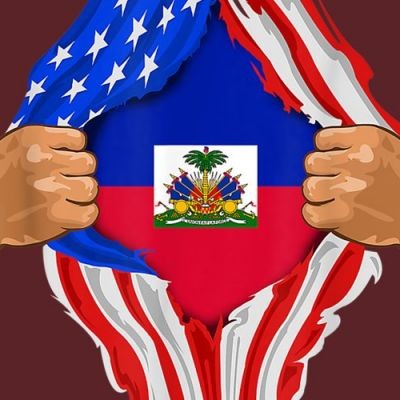Haitian Social Entrepreneur Overcomes Challenges by 'Connecting the Dots' - Marc Alain Bou
Marc Alain Boucicault Shares Insights and Stories About His Superpower
Devin: Marc, what's your superpower?
Marc: I don't think I have any. I really think anyone can do what I'm doing. If you are passionate, if you are disciplined, if you know how to connect dots, I think you can do anything that I'm doing right now.
Building this company, honestly, was a bit unique, and I did not think I was capable of doing it until I actually started putting the dots together. The guy [Roy Glasberg] at Google that I met amazed me when he said the following, "I don't have any superpower. I just know how to connect the dots." And that resonated with me. And when I came back to Haiti, I tried to reach out to sponsors, people who were sponsoring my social venture, to find that interest in a person that really would like to be able to help you. Not asking too much, but just a little bit. And you, your job is to connect those little bits all together because there's no big money in Haiti that you can just tap your hand into and build the company and build the 800 square meter space just like the one we have today. It takes time, patience and being able to connect the dots. If I would say I have a power, maybe that's what it is.
You can watch the full interview with Marc here: marc.s4g.biz.
Marc Alain Boucicault is a Fulbright Scholar who worked for the International Development Bank and the World Bank as an economist at the outset of his career. As much influence and power as that gave him, he felt he could make a bigger difference as a social entrepreneur, helping build the tech industry from the ground up in his home country, Haiti.
From scratch, he built Banj, a co-working facility and business accelerator with high-speed internet access for tech entrepreneurs in Port-Au-Prince. He held a variety of events and brought entrepreneurs into the space to begin building tech companies.
Then, without warning in one evening, a riot in this capitol city focused on removing the president included a rampage of destruction that destroyed every physical manifestation of the community he’d built over the previous two years. His business was gone.
At that point, he thought there would be no way to recover. Building it once had represented a herculean task. He couldn’t see a way to recreate it all.
For once, I suspect, he was happy to be wrong. The community he had built, including an international network of support, including sponsors and investors, rallied around and helped rebuild the facility.
Today, he boasts that more than 7,000 people have attended events there. Hundreds of entrepreneurs have received support, coaching or a place to work. Among these are 40 tech companies getting mentored and cultivated to build a tech economy in a country without one.
When I first spoke to Marc before the riot, he described his superpower as connecting the dots and explained the process by which he’d connected with people and obtained from each some token of value. In that conversation, however, he didn’t fully appreciate how important that network of connected dots was.
When the riot left Banj in ruins, the network returned. One by one, the sponsors and donors, the entrepreneurs and everyone else in the community returned. They helped organize a crowdfunding campaign to restore the building, and before long, it happened.
“That's when I realized this is stronger than me,” Marc says. Once assembled as parts of the organization, the connected dots represented something more than he had appreciated, certainly something more significant than and somewhat independent of himself.























